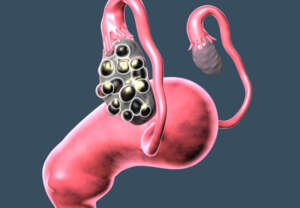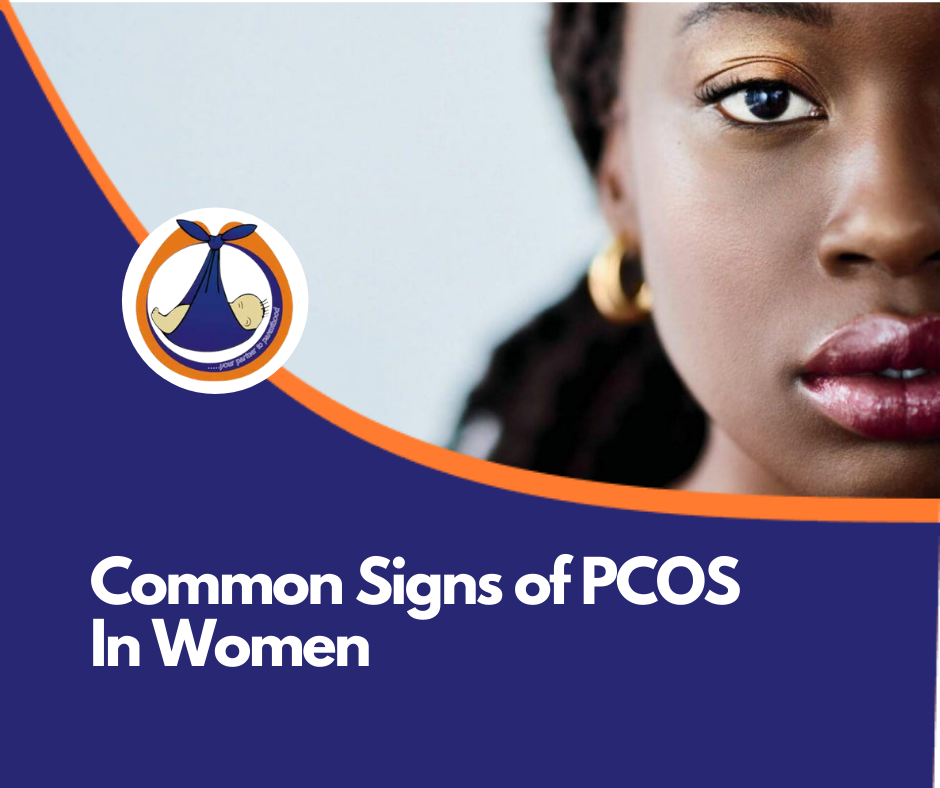What is PCOS?

Polycystic Ovary Syndrome or PCOS is a health problem that afflicts 1 in 10 women in Nigeria. PCOS creates a hormone imbalance and an imbalance in your metabolism. This can affect many facets of your health including your fertility. PCOS is treatable and although women can be diagnosed any time after puberty, most women with PCOS are diagnosed in their 20’s and 30’s, usually after trying unsuccessfully to conceive.
The polycystic name is a misnomer as these women do not actually have cysts, but rather an accumulation of too many follicles (eggs), that resemble cysts. Although doctors have recognized and studied PCOS since it was first discovered in 1721, the exact cause of the condition isn’t known. Some doctors feel it is genetic, while others have other ideas.
Women with PCOS have an inordinately higher amount of androgens or male hormones, in their system. These same women very often present with a very low amount of progesterone and are insulin resistant.
THE MOST COMMON SIGNS OF PCOS
Women who are diagnosed with PCOS typically have prolonged or irregular periods. They may frequently miss their periods, which is very disheartening when trying to conceive, or their periods are infrequent and unpredictable. However, some women with PCOS have regular menstrual cycles, which can be confusing to patients and even doctors. Other common symptoms of PCOS in females include:
Abnormal hair growth such as on the face, chest or back or male pattern baldness. This is attributed to the excess of androgens.
Mood changes may be present due to the extreme imbalance of hormones.
Excess skin such as skin tags in the arm pits and around the neck.
Hyper-pigmentation and darkening of the skin, typically around the neck.
Weight gain, especially in the midsection and difficulty losing weight caused by insulin resistance. Male type obesity is more common, which refers to central obesity.
Adult acne can develop due to the excess male hormones. The acne may show up on your face, chest or back. Acne associated with PCOS will not clear up easily with typical acne treatment and may need intervention with the use of birth control pills, epilation and the use of laser removal.
Infertility is a common symptom of PCOS and the one for which women typically seek out medical help. If you and your partner have been trying to become pregnant for 1 year (6 months if you are over 35) without success you need to schedule an appointment with your physician.
RISKS OF PCOS
If you have experienced any of the symptoms of PCOS, you need to see your doctor as soon as possible. In addition to compromising your fertility, there are certain, fairly serious health risks that accompany the condition.
Type 2 diabetes is a symptom and a serious risk of PCOS. It is associated with insulin resistance.
Cardiovascular disease can develop in women with PCOS, even at a young age. Studies have found those women with the condition have a higher likelihood of high blood pressure, stiffness and clogging of the arteries, and high cholesterol. A buildup of plaque in the arterial walls has been seen in women with PCOS at alarmingly younger ages. And those women are at a higher risk for heart attack and stroke.
The risk of developing endometrial cancer is increased in women with PCOS with irregular or complete absence of periods. Those women with PCOS who do not desire pregnancy immediately, the use of birth control pills should be considered immediately to lower the risk of endometrial cancer.
Anxiety and depression are more prevalent in women with PCOS. This is attributed to the increase of male hormones. Women with PCOS often develop eating disorders as well.
WHY THERE’S STILL HOPE
A diagnosis of PCOS is usually made after a thorough and comprehensive exam. This will include an overall physical exam to measure your blood pressure and BMI, and rule out other causes of your symptoms. Next your doctor will perform a pelvic exam, an ultrasound, and blood testing. Once the diagnosis has been made there are many different options to help you overcome the type of infertility that goes along with PCOS.
Lose weight: While this can seem extremely difficult or women with insulin resistance it has been shown to help restore fertility. By limiting the calories you take in and upping the calorie burn through activity you will help too balance your hormones and get your periods back to normal. Your doctor can put you in touch with a dietician who will help develop a plan for success.
Fertility Medications: Once your doctor rules out any other causes of infertility in you and your partner you may be prescribed a course of fertility medication to improve ovulation.
IVF: By far the most successful path to pregnancy for women with PCOS is in-vitro fertilization. Compare to medication alone IVF offers you and your physician better control over your pregnancy.
Surgery: Although surgical treatment of PCOS is an option, it is not a preferred method. I can be considered in certain and limited number of cases.
The good news is, while PCOS is with you for life, it is manageable. Under the care of your doctor, you can overcome the infertility which accompanies PCOS, and you can lower your health risks as well.
READ ALSO >>> 6 Issues That Can Cause Infertility In Women
Kindly follow us on our social media pages for more regular updates:


